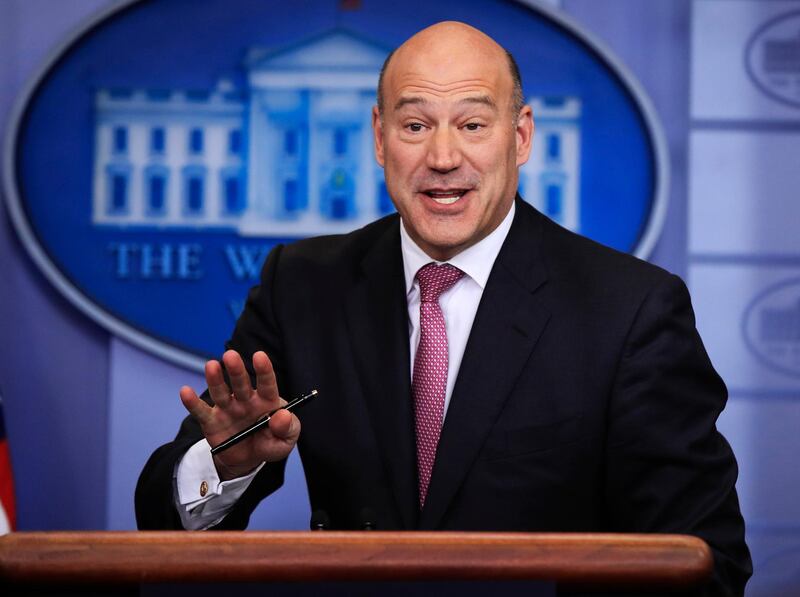In a fresh blow to the administration, Gary Cohn is resigning as US President Donald Trump’s top economic adviser, leaving his post in the administration as it prepares to impose steep tariffs on steel and aluminium that he had opposed.
“It has been an honour to serve my country and enact pro-growth economic policies to benefit the American people, in particular the passage of historic tax reform,” Mr Cohn said in a statement released by the White House to reporters. “I am grateful to the president for giving me this opportunity and wish him and the administration great success in the future.”
The president’s announcement on Thursday that he would press forward with a 25 per cent tariff on steel imports and 10 per cent on aluminium left markets reeling and served as a public rebuke of Mr Cohn, the director of the National Economic Council, who had furiously lobbied against the penalties.
One person with knowledge of the chaotic West Wing decision-making process said Mr Cohn and commerce secretary Wilbur Ross, who had recommended the tariffs to the president, privately argued over the issue just hours before it was announced.
The tariffs appeared to mark the tipping point for Mr Cohn, 57, a registered Democrat who made clear that he saw his job in the administration to be an advocate for business-friendly economic principles. He helped the president steer a large package of tax cuts into law last year but proved unpersuasive on trade, where Mr Cohn was a stark counterpoint to nationalists and economic populists in the administration led by former chief strategist Stephen Bannon.
It was expected in the White House and on Capitol Hill that Mr Cohn would be more likely to leave the administration once the tax bill was signed into law.
Still, his departure may cause further turbulence in financial markets, where investors saw him as a steady hand in an otherwise unpredictable administration. His resignation also leaves uncertainty about the president’s economic agenda. With both Mr Cohn and Mr Bannon now gone, economic policy may be steered more by treasury secretary Steven Mnuchin and Mr Ross.
The president offered his own expression of gratitude in a written statement the White House released.
“Gary has been my chief economic advisor and did a superb job in driving our agenda, helping to deliver historic tax cuts and reforms and unleashing the American economy once again,” Mr Trump said. “He is a rare talent, and I thank him for his dedicated service to the American people.”






